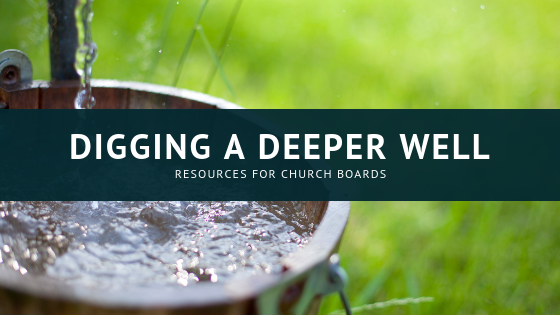Pastors and church leaders are quick to assert that they are not in competition with other churches. But most will admit that, while they aren’t trying to compete, they do feel pressure to “keep up.” This leads to many spiritual ailments: distraction, envy, disappointment, and—most toxic of all, especially in this era—inauthenticity.
Thirty years after graduating from Stanford University, Mary Poindexter McLaughlin wrote a poem about failing to satisfy the expectations of her alma mater. The poem was published in that arbiter of expectations, the university alumni magazine, around the time of her reunion.[i]
Alma Mater
No doubt she’s disappointed,
Such a disgrace I turned out to be.
Not a policy-maker
Or tech-savvy entrepreneur
Nothing of note.
I gave birth three times
and sent three
tall, kind people
into the world
I offered words of consolation
I planted sunflowers
I listened
Elected official?
Pulitzer Prize-winning journalist?
Cutting-edge thought-leader?
MD, PhD, CEO?
Oscar, Emmy, Tony?
Nobel?
Anything?
I closed my mother’s eyes
when she died
and again, my father’s
I made no fortune
no headlines
nothing went viral
I sang and danced
for no one
I remembered
I noticed
I breathed
Just an ordinary life
filled with extraordinary love.
How disappointing.
- What is the tone of this poem? Is the author at peace with her alma mater? With herself?
- Whose expectations do you carry around in your head, in your home life or work life? How about in your church life?
- What have been some sources of disappointment for your congregation? How did you as a church board respond?
The forces of our culture can lead us into competition and disappointment before we know what is happening. Church pastors and boards therefore need to work together to keep focused on what builds up vital ministry. With gratitude, we are given scripture that insistently thwarts and disrupts our headlong rush to measure ourselves by false standards.
1 Corinthians 1:26-31:
26 Consider your own call, brothers and sisters: not many of you were wise by human standards, not many were powerful, not many were of noble birth. 27 But God chose what is foolish in the world to shame the wise; God chose what is weak in the world to shame the strong; 28 God chose what is low and despised in the world, things that are not, to reduce to nothing things that are, 29 so that no one might boast in the presence of God. 30 God is the source of your life in Christ Jesus, who became for us wisdom from God, and righteousness and sanctification and redemption, 31 in order that, as it is written, “Let the one who boasts, boast in the Lord.”
- What is the ‘call’ of which Paul speaks? If we are not called to be wise or strong, what are we called to be?
- How does the 1 Corinthians text “speak to” the poem?
- What are the pros and cons, in your current context, of being foolish?
- Can you think of times you have been foolish as a congregation, in the way Paul speaks of being foolish here?
[i] From a sermon by Kristy Farber at Mercer Island Presbyterian Church. She notes that she first heard this poem in a sermon by Luke Powery at Duke Chapel and subsequently found it on the Stanford website.








No Comments